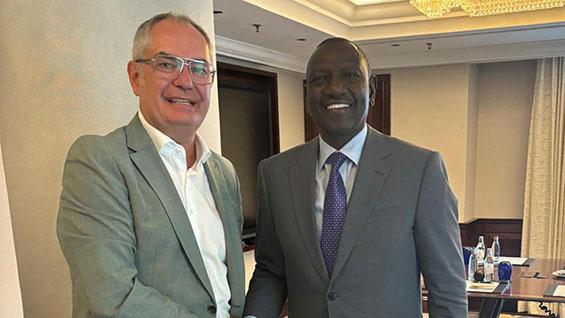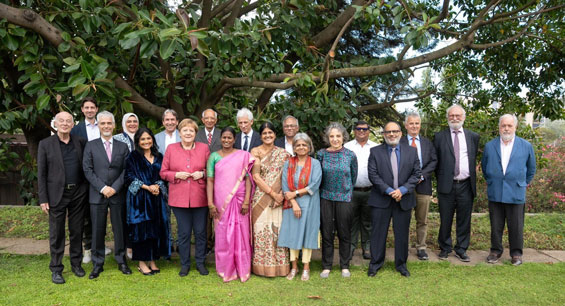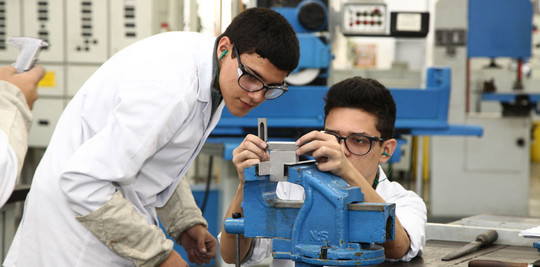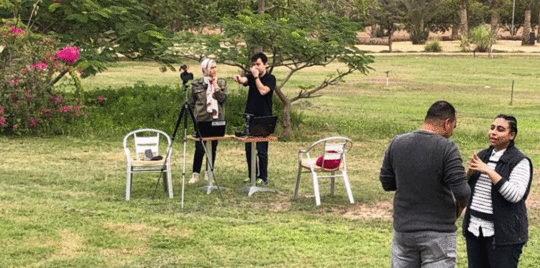Published
Project success through team spirit: Final conference in Lviv
Project success through team spirit: Final conference in Lviv
On April 9, 2019, in Lviv (Lemberg), the final conference of the bbw project for the improvement of vocational training in the regions of Lviv and Lutsk took place.
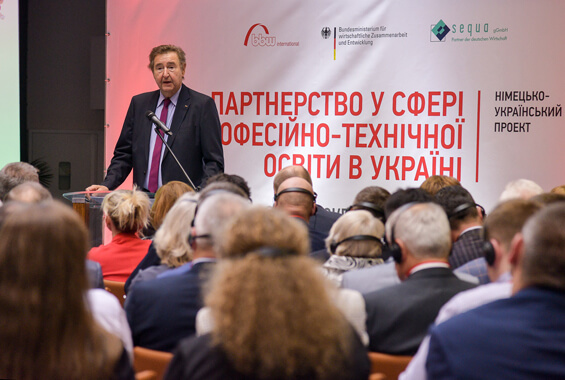
80 high-ranking guests came to pay tribute to the outstanding results of the project: Representatives of the Ministry of Education in Kiev, the two districts of Lviv and Lutsk as well as representatives of the participating vocational schools and companies celebrated together with the bbw Chair of the Board, Prof. Günther Goth, the Managing Director of the bbw Group, Anna Engel-Köhler and the Head of International Department bbw Group, Volker Falch. The pilot project, which began in May 2016, was financed by the German Federal Ministry for Economic Cooperation and Development (BMZ) and supported by sequa gGmbH in Bonn.
"But what is really special about our vocational training partnership is what all participants were enthusiastic about from the start: the team spirit. It ensured that many goals were not only achieved but in some cases even exceeded." (Prof. Goth in his speech)
During the three project years, two new professions were developed to meet the needs of local companies. Both the "machine and plant operator" and the "electric gas welder" are professions in high demand in both regions.
In more than 20 seminars, around 120 multipliers (teachers, company trainers, representatives of schools, authorities and companies) were trained in topics such as methodology, didactics, marketing of vocational training and also in specialist topics. To date, around 100 trainees have successfully completed the new training courses in a total of eight pilot classes and have been able to conclude good employment contracts almost without exception.
In his key note Prof. Goth was able to deliver a cheerful message to the audience: the BMZ has approved a prolongation and extension of the project until the end of the year. Volker Falch, Head of International Department bbw Group, added: "We are currently in talks with the BMZ about continuing the project in Western Ukraine, also beyond 2020.”
Background of the project
Ukraine, the largest country in Europe in terms of surface area with around 46 million inhabitants, is undergoing major upheavals. Decades of membership in the Soviet Russian have left their mark on legislation, administration, infrastructure and the economy. One of these is the previous system of vocational training which was centrally controlled and predominantly implemented at school. After the declaration of independence and the increasing orientation towards Europe, the demand on the part of companies for qualified employees with a practical orientation increased continuously. At the same time, confidence in the outdated vocational training system which could hardly respond to the needs of the economy declined.
Since 2016, preparations have been made to reform the vocational training system – this reform was finally adopted in 2019. The core elements of the comprehensive reform are the decentralisation of school administrations, the strengthening of regional responsibility in the development and adaptation of vocational profiles, orientation towards the dual vocational training system in Germany and, as an essential element, orientation and coordination with the needs of industry. Such an improved vocational training system should strengthen the competitiveness of companies and improve investment incentives for domestic and foreign companies – thus supporting the country's economic development.
Of course the individual perspectives and opportunities created in Ukraine should also counteract the massive migration of young Ukrainian talents.

